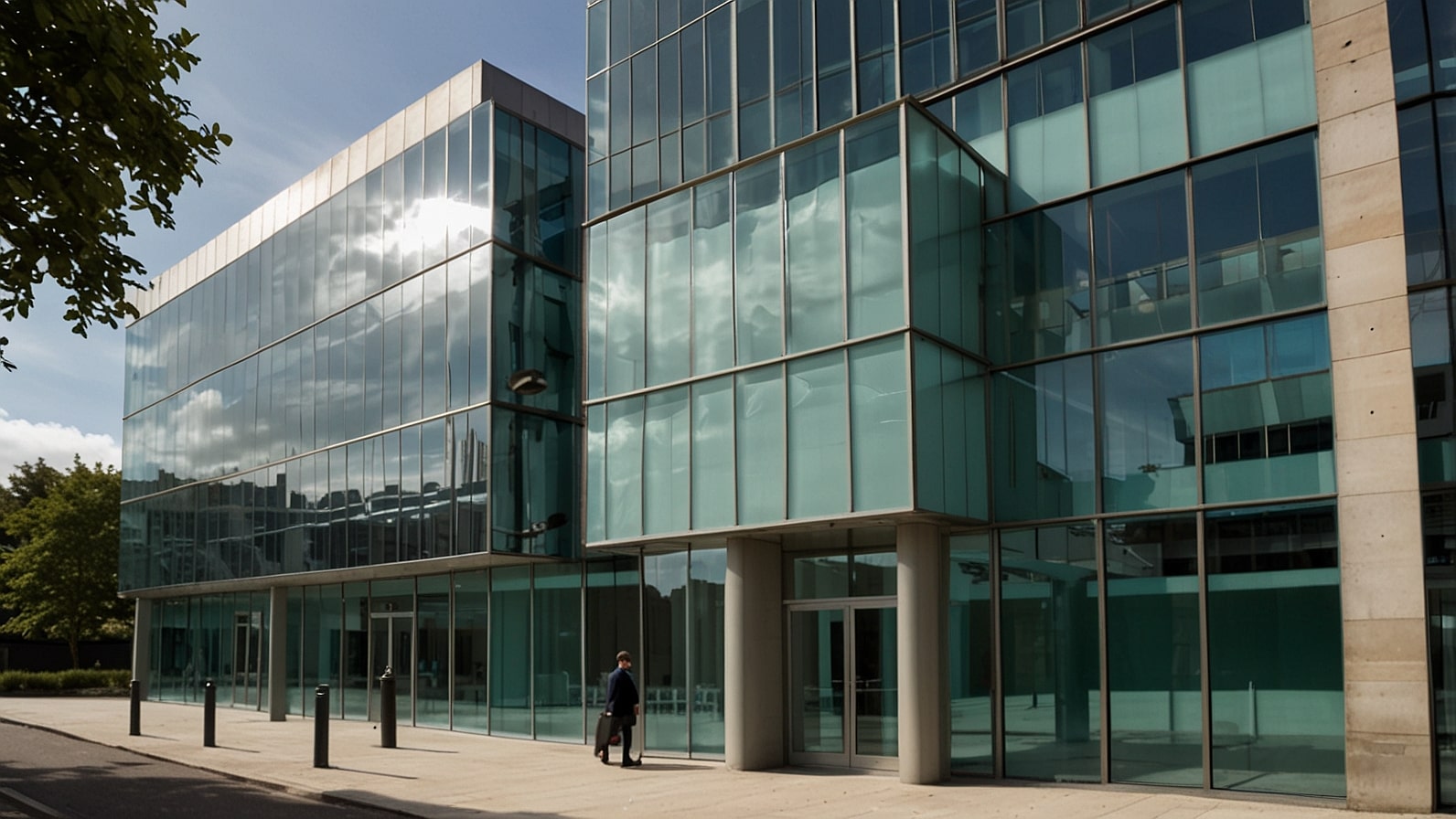
Kier Group Leadership Transition Signals Strategic Shift
In a major development for the United Kingdom’s leading construction and infrastructure organisations, Kier Group announced today, 22nd July 2025, that a significant change is to take place within the leadership team. It has been announced that the company will see the departure of Andrew Davies, who has held the position of Chief Executive Officer since his appointment to this role in 1983, and will be replaced by Justin Togwell, a rising insider. The change that has been widely covered in business circles is a point of significant change through which Kier will explore the challenging economic environment to secure its place in the competitive construction industry.
Based in Manchester, the Kier Group is a pillar in the UK’s infrastructure and building sector, with over 90 years of experience. The company employs more than 10,000 people and has a portfolio that includes highway, hospital, school, and housing construction projects, making it a massive influence on the development of the built environment in the country.
It is contracted on large-scale projects and has a high-profile portfolio that includes the HS2 fast rail and maintains some of the largest road networks. Nonetheless, recent years have been marked by the company struggling with financial challenges, including increased expenditures, supply chain issues, and the aftermath of economic uncertainty. It is against this background that the change of leadership can be interpreted as a strategic move aimed at positioning Kier on a path of stability and development.
The Perils of Changing Leaders Revealed
The news about Andrew Davies leaving office follows a period where one can commend successes as well as shortcomings. Davies, who joined Kier in 2019, was said to have led the firm through challenging periods, including a restructuring push aimed at reducing debt and enhancing operational effectiveness. During his tenure, the company undertook a refocus under his leadership, with non-core assets being divested, while Kier prioritized higher-margin contracts.
Part of his effort contributed to the stabilization of the company’s finances, and as Kier reveals in its latest financial year, the company has returned to profitability. However, the company has remained resilient in the face of enduring inflationary pressures and labor shortages, and some people have wondered whether new leadership will be required to address these persistent problems.
As the new CEO, Justin Togwell, he also brings a wealth of experience to the Kiers board. Togwell, as the Chief Financial Officer of the company since 2020, has played a guiding role in formulating the company’s financial strategy, including cost-cutting measures and securing new financial arrangements.
His appointment promises continuity of the strategic orientation in the company, and the focus is on utilizing the existing expertise to maintain the momentum. Industry analysts criticize the fact that Togwell has extensive knowledge of Kier operations, given that the company must operate under a complicated economic situation marked by increasing interest rates and the government’s careful expenditure on infrastructure.
Kier Implications
The change in leadership occurs as Kier tries to capitalize on an opportunity presented by the UK infrastructure boom. This is because the government has a net-zero agenda and regional development plans like the leveling-up agenda, which will provide an opportunity for companies like Kier to get long-term contracts in the process. The appointment of Togwell indicates that Kier will adhere to its strategy of sustainable growth, prioritizing projects that meet the demands of environmental and social governance.
This direction is supported by the company, which in recent years has won contracts for the construction of energy-efficient school buildings and renewable energy infrastructure. There are still problems, however. The construction industry is facing supply chain issues, especially in sourcing building materials such as steel and timber, which have resulted in increased construction costs.
Project scheduling has also been impacted by labor shortages, which have been exacerbated since Brexit, when the government implemented changes to immigration laws. Whether Togwell can steer the company through such headwinds without diminishing Kier’s reputation as a good and reliable one will be telling. His financial management experience would help ensure that the company remains competitive when bidding on large-scale projects without compromising its profitability.
Response in the Market and Outlook
The news of the CEO’s departure has caused mixed reactions in the market. Volatility was mild in Kier’s shares today as investors became cautious due to the leadership change. There were also optimistic voices from the analysts, who hailed his track record, which includes his contribution to fortifying Kier’s balance sheet as a positive sign. Nonetheless, other people pointed out that other issues affecting the construction sector cut across and may dilute the short-term effects of the leadership succession. How the company will perform on its order book, which comprises multi-billion-pound contracts, will be monitored in the coming months.
Going forward, Kier will focus even more on its infrastructure and public sector projects. The fact that the company is involved in high-profile business projects, such as HS2 and urban center regeneration, makes it better placed to benefit from government spending even when there are fiscal restraints. Togwell will most likely utilize leadership to ensure operational efficiency, make strategic investments in digital technology, such as building information modeling, and foster smooth collaborations with local authorities to secure new tenders. The implication of his appointment is also that there is a commitment to retaining talent in the organization, which is a key component in an industry where there is a skills shortage.
The Bigger Picture
The shift in leadership at Kier is indicative of larger processes in the UK business environment, which reflects the draft of changing demands and shifting economic contexts. The construction industry, in particular, finds itself in this new twilight zone between the impulses of innovation and the demands of cost pressures and regulatory changes.
The fact that Kier manages to survive in such an environment under the leadership of Togwell is going to act as a barometer for the industry. Continuing to emphasize sustainable growth and operational resilience will be the hallmark of the company as it charts its future in an increasingly competitive landscape within the UK infrastructure sector.
The announcement today by Kier Group demonstrates the company follows through on its tradition, but at the same time, copes with the rapidly evolving market challenges. Under the leadership of Justin Togwell, the organization stands for a stable future through its skills in delivering projects that define the future of the UK. The new chapter in the firm’s history is one of creeping optimism and reinvigorated strategy, as the business fraternity closely observes it.



 Bitcoin
Bitcoin  Ethereum
Ethereum  Tether
Tether  XRP
XRP  USDC
USDC  Solana
Solana  TRON
TRON  Lido Staked Ether
Lido Staked Ether  Cardano
Cardano  Avalanche
Avalanche  Toncoin
Toncoin